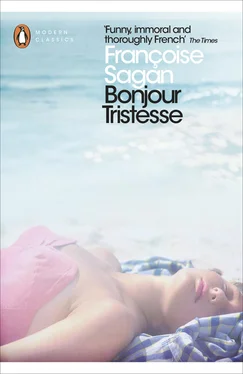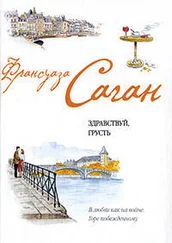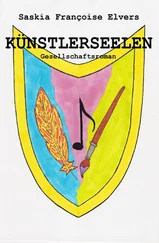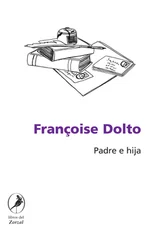
Françoise Sagan
BONJOUR TRISTESSE AND A CERTAIN SMILE
Translated and with Notes by Heather Lloyd
With an Introduction by Rachel Cusk

Contents
Introduction
BONJOUR TRISTESSE
Part One
Chapter One
Chapter Two
Chapter Three
Chapter Four
Chapter Five
Chapter Six
Part Two
Chapter One
Chapter Two
Chapter Three
Chapter Four
Chapter Five
Chapter Six
Chapter Seven
Chapter Eight
Chapter Nine
Chapter Ten
Chapter Eleven
Chapter Twelve
A CERTAIN SMILE
Dedication
Part One
Chapter One
Chapter Two
Chapter Three
Chapter Four
Chapter Five
Chapter Six
Chapter Seven
Chapter Eight
Part Two
Chapter One
Chapter Two
Part Three
Chapter One
Chapter Two
Chapter Three
Chapter Four
Chapter Five
Chapter Six
Translator’s Note
Notes
Follow Penguin
PENGUIN MODERN CLASSICS
BONJOUR TRISTESSE AND A CERTAIN SMILE
Françoise Sagan, born Françoise Quoirez in 1935, was the daughter of a prosperous industrialist. She was only eighteen and had failed her foundation-year examinations at the Sorbonne when she completed her first novel, Bonjour Tristesse . For its publication in 1954 she replaced her original surname by a nom de plume taken from Proust’s character the Princesse de Sagan. As a coming-of-age novel, Bonjour Tristesse was a huge succès de scandale . The fact that it had been written by a young woman of impeccably bourgeois credentials was also a source of fascination to the French public and, as well as attracting critical acclaim, Sagan rapidly gained celebrity status. Her eagerly awaited second novel, A Certain Smile , followed in 1956. Sagan’s other works of fiction include Those Without Shadows, Aimez-vous Brahms …?, La Chamade, The Heart-Keeper, Sunlight on Cold Water, Scars on the Soul, The Unmade Bed, The Painted Lady, The Still Storm, Painting in Blood, Silken Eyes and Incidental Music . She also wrote for the theatre and produced several collections of personal reminiscences. Her work has been widely translated. Françoise Sagan died in 2004.
Heather Lloyd divides her time between Scotland and south-west France. She was previously Senior Lecturer in French at the University of Glasgow where she taught French literature of the eighteenth and twentieth centuries. As well as a study of Bonjour Tristesse , she has published work on Françoise Sagan as an incarnation of literary celebrity.
Rachel Cusk was born in Canada in 1967. After spending much of her childhood in Los Angeles, she finished her education in England, reading English at New College, Oxford. Her much praised debut novel, Saving Agnes , won the Whitbread First Novel Award in 1993.This was followed by The Temporary (1995); The Country Life , which earned the 1997 Somerset Maugham Award; A Life’s Work: On Becoming a Mother (2001); The Lucky Ones , shortlisted for the 2003 Whitbread Novel Award; In the Fold (2005); Arlington Park (2006), shortlisted for the Orange Prize for Fiction; The Last Supper: A Summer in Italy (2009); and The Bradshaw Variations (2009). In 2003 Rachel Cusk was nominated by Granta magazine as one of twenty Best of Young British Novelists. Her most recent book is Aftermath: On Marriage and Separation (2012).
New readers are warned that the introduction reveals details of the plot.
It is one of the ironies of the writer’s predicament that self-expression can sometimes become fate. The fiction lays a fetter on the life. To the reader, as often as not, it will all seem to be part of the same story. Scott Fitzgerald, for instance, virtually described his own funeral in The Great Gatsby . Albert Camus, more eerily, foretold precisely the manner of his death in La Chute . Vaguely, the reader comes to see the writer as nothing more than one of his or her own characters: the suspicion that literature occurs entirely within the bounds of personality is confirmed. A kind of disappointment afflicts our feelings about writers, as it does not those about other artists. It is as though they, with their mortal grasp on the faculty of imagination, have crushed our illusions about human destiny. They have described existence, but they have failed to transcend it. They have failed to provide us with a happy ending.
The obituaries that followed Françoise Sagan’s death in 2004 were full of the sense of this failure. She had become, we were told, a tragic, pitiable figure: destitute, isolated, tainted by scandal and alcoholism. She had, of course, produced many books, but none as successful and hence as troubling to history as her first, published when she was eighteen. In that book, Bonjour Tristesse , she described the hedonism and amorality of youth, the hedonism and amorality of well-heeled French intellectuals, the hedonism and amorality of post-war Europe on the cusp of the sixties. Not surprisingly, it was the hedonism and the amorality of her life that interested the obituary-writers. For there it was, her fetter, her fate: from this slender, misunderstood novel, and from its young heroine Cécile, Françoise Sagan never escaped. Bonjour Tristesse concludes with a fatal car accident, and three years after its publication Sagan, whose love of dangerous driving invariably forms part of the legend of her life, received severe head injuries when her Aston Martin crashed at high speed. The disappointment among the obituary-writers that the author did not submit then and there to her fictional destiny is palpable.
If there is hedonism, if there is amorality in Bonjour Tristesse , then it is of a most artistically proper kind. Morality, and its absence, is the novel’s defining theme: in this sense Sagan is far more of a classicist than her Existentialist brethren Sartre and Camus. Certainly, she concerns herself with the twentieth-century problem of personal reality, of the self and its interaction with behavioural norms, but in Bonjour Tristesse those norms are as much psychical as societal. Cécile, a motherless seventeen-year-old whose permissive, feckless father has provided the only yardstick for her values and personal conduct, offers Sagan a particularly naked example of the human sensibility taking shape. Cécile’s encounters with questions of right and wrong, and with the way those questions cut across her physical and emotional desires, constitute an interrogation of morality that it is difficult to credit as the work of an eighteen-year-old author. What is the moral sense? Where does it come from? Is it necessary? Is it intrinsic to human nature? Is it possible to lack a moral sense, and if so does that discredit morality itself? These are the questions that lie at the heart of this brief and disturbing novel.
Cécile and her father, Raymond, have decided to rent a summer villa on the Côte d’Azur for two months. Raymond is bringing his girlfriend, Elsa, along for the holiday, though Cécile is anxious that the reader should not disapprove: ‘I should explain the situation right away, as it could give the wrong impression. My father was forty and had been a widower for fifteen years.’ Notice that it is Raymond who has been bereaved, not Cécile herself: she tells us only that she had been at boarding school until two years earlier. Later, she remembers her father’s embarrassment at her ugly uniform and plaited hair when he came to collect her from the station. It is as though they had not seen each other in the intervening years; as though Cécile, between the ages of two and fifteen, was an orphan. ‘Then, once we were in the car, there had been his burst of sudden, triumphant joy because I had his eyes and his mouth and because I was going to be for him the dearest, most marvellous of toys.’
Читать дальше














